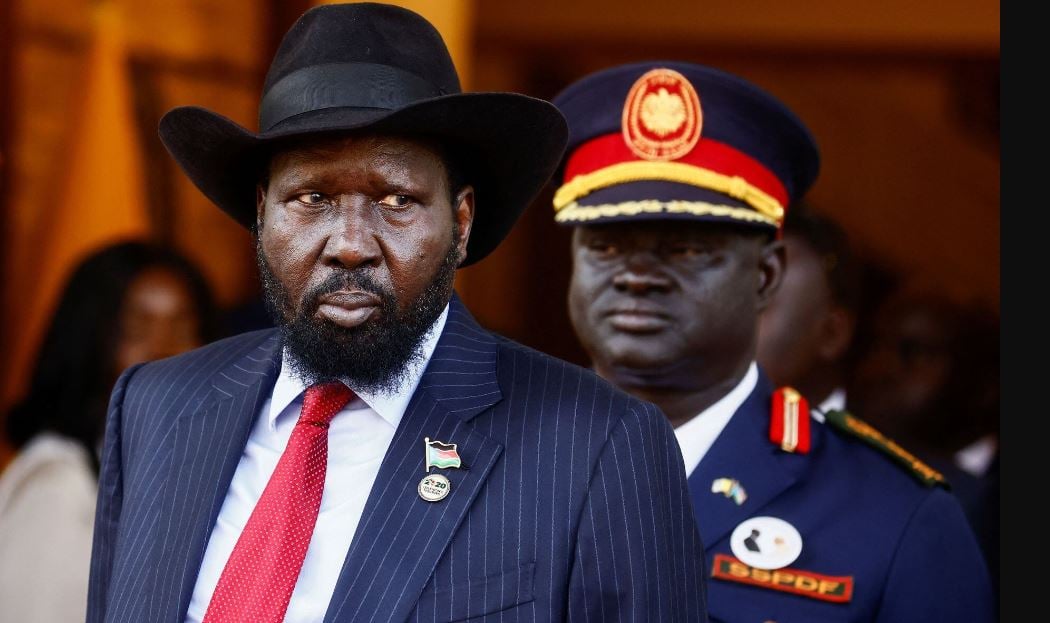South Sudan auditor flags spending of IMF funds

South Sudan's President Salva Kiir Mayardit.
What you need to know:
- ‘‘We have also taken note, however, of the reporting of unused balances against the various budget allocations and, in partnership with the authorities, we are seeking to establish the appropriate steps to be taken to ensure that these remaining balances are used in line with the agreement,’’ An IMF spokesperson said
South Sudan’s National Audit Chamber wants the Ministry of Finance and Planning to account for the use of $114.4 million received from the International Monetary Fund (IMF) for budget and balance of payments support in 2023.
The funding was part of the emergency funding through the IMF’s Rapid Credit Facility-Food Shock Window (RCF-FSW) received in January 2023 to bolster Juba’s dwindling foreign exchange reserves and address the deepening humanitarian crisis occasioned by flooding, falling oil production and disruption of global supply chains as a result of the Ukraine-Russia war.
The IMF funds constituted just over one percent of South Sudan’s total budget for the 2022/2023 fiscal year, estimated at $10.67 billion (Shs40 trillion) .
South Sudan applied for and negotiated emergency financing under the Food Shock Window with the IMF. The Fund’s board approved $114.38 million (Shs437b) on January 19, 2023, and disbursed it four days later.
The funding was both for the balance of payments support and budget support to finance the expected fiscal deficit estimated at five percent of GDP in the 2022/2023 fiscal year.
Of the total facility, 60 percent ($68.62 million) was to be made on-lent by the Bank of South Sudan to the government under the same terms as obtained from the IMF.
Food shock window
To mitigate the impact of food prices and climate shock on vulnerable groups, $15m (Shs57b) from the disbursement was to be transferred to the World Food Programme, $5m (Shs19b) to the International Organisation for Migration and the remainder to finance the ministries of General Education and Instruction and Health through conditional transfers in line with the allocations made in the 2022/2023 budget.
Auditor General Steven Kiliona Wondu, in his Compliance Audit Report dated April 3, outlines irregular award of tenders to unqualified bidders, single-sourcing in the award of procurement contracts, irregular disbursement of funds, irregular advance payments to contractors, implementation of projects not budgeted for and failure to withhold tax on payments made to contractors.
“Based on the audit procedures performed, the disbursement and utilisation of the emergency funding received by the government through the Food Shock Window of the Rapid Credit Facility of the IMF was not in compliance, in all material respects, with the Letter of Intent and the identified audit criteria,” Mr Wondu said.
The Auditor General wants the Finance Ministry to provide full accountability for the funds allocated to budget support, and that all revenues and expenditures of the government be on-budget and according to the approvals by the National Assembly.
He further wants all government payments to be processed through an integrated financial management information system (Ifmis) to improve transparency.
The central bank did not answer our e-mail.
An IMF spokesperson said that they “consider that the allocations made to the key items in the budget (health and education) to be in line with the LOI, as were the allocations to World Food Programme, the International Organisation for Migration, and the resources used by the central bank for reserves.”
IMF response
‘‘We have also taken note, however, of the reporting of unused balances against the various budget allocations and, in partnership with the authorities, we are seeking to establish the appropriate steps to be taken to ensure that these remaining balances are used in line with the agreement,’’ An IMF spokesperson said




